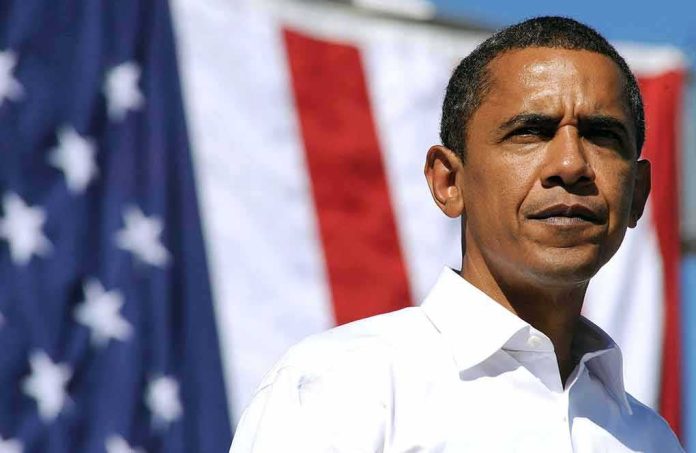
Donald Trump’s feud with Barack Obama’s Nobel Peace Prize isn’t just about a trophy—it’s a high-stakes fight over presidential legacy, media narratives, and what America values in its leaders.
Story Snapshot
- Trump publicly denounces Obama’s 2009 Nobel Peace Prize as undeserved, claiming it rewarded “destroying our country.”
- The Nobel Committee’s decision remains controversial for recognizing Obama’s rhetoric over achievement.
- Trump positions his own diplomatic efforts, from the Abraham Accords to a Gaza peace deal, as more deserving of global recognition.
- This rivalry reveals how international awards become battlegrounds for political validation and legacy in U.S. politics.
Trump’s Crusade Against Obama’s Nobel Prize: More Than Sour Grapes
Donald Trump’s relentless campaign to delegitimize Barack Obama’s Nobel Peace Prize has become a defining element of his public persona. He doesn’t just question the Nobel Committee’s judgment—he frames Obama’s 2009 win as a reward for “destroying our country,” a line that electrifies rallies and headlines alike. This isn’t idle trash talk; it’s a calculated effort to recast the narrative of presidential greatness. Trump’s criticism consistently spikes when his own diplomatic efforts, like the Abraham Accords or a Gaza ceasefire, are in the news. In his view, the Nobel should honor results, not rhetoric, and he believes history—and the committee—have shortchanged him.
Trump’s personal animosity toward Obama is legendary, cemented by the infamous 2011 White House Correspondents’ Dinner where Obama lampooned Trump in front of Washington’s elite. Since then, Trump has used every opportunity to contrast his “deals” with what he calls Obama’s “empty speeches.” The Nobel Prize, with its aura of international legitimacy, is the ultimate scorecard in this rivalry. Every time Trump touts another diplomatic breakthrough, he invokes Obama’s win as a symbol of misplaced prestige and political bias. He isn’t just seeking validation; he’s rewriting the rules for what counts as real leadership on the world stage.
The Nobel Peace Prize: Aspirational Ideal or Political Football?
The Nobel Peace Prize has always been political, but Obama’s 2009 award elevated that reality to center stage. Less than a year into his presidency, Obama received the prize for his “extraordinary efforts to strengthen international diplomacy and cooperation,” a decision that even he admitted felt premature. Critics, including many in the U.S., argued that the committee rewarded hope instead of accomplishment. Previous laureates like Henry Kissinger and Yasser Arafat also faced scrutiny, but Obama’s win reignited debate about whether the Nobel honors past achievement or future promise. For Trump, this ambiguity is a tactical weapon—one he wields to question the very legitimacy of the award when it suits his political ambitions.
Trump’s presidency brought a different approach to diplomacy—transactional, brash, and highly publicized. He points to the Abraham Accords, which normalized relations between Israel and several Arab states, as evidence of tangible peace-building, in stark contrast to what he calls Obama’s “empty talk.” Trump’s repeated Nobel nominations, though never resulting in a win, serve as rallying points for his supporters and fodder for his ongoing battle with the legacy of his predecessor. The Nobel Committee, for its part, maintains its tradition of secrecy and independence, refusing to comment on Trump’s broadsides.
Legacy, Rivalry, and the Politics of Recognition
Presidential legacies are built on more than policies; they’re shaped by symbols, honors, and how those are interpreted by history. Trump’s fixation on the Nobel Peace Prize is about more than personal validation—it’s a contest over what kind of leadership America should celebrate. By attacking Obama’s award and touting his own diplomatic achievements, Trump reframes the conversation around measurable outcomes rather than lofty ideals. He leverages the issue to energize his political base, dominate media cycles, and force a reckoning on the meaning of international recognition.
The power struggle extends beyond the two men. Lawmakers, media outlets, and international leaders all play roles in amplifying or challenging the Nobel narrative. Republican allies nominate Trump for the prize; Democrats defend Obama’s legacy; the Nobel Committee faces ongoing scrutiny over its selection process. The result is a prize that, while intended to honor peace, has become a flashpoint in America’s culture wars. The controversy may erode the prize’s legitimacy, but it also ensures its enduring relevance in debates over global leadership.
Implications: Who Wins When Awards Become Weapons?
The immediate impact of Trump’s attacks is clear—media storms, partisan rallies, and a Nobel Prize that’s as contentious as ever. In the long run, the episode raises bigger questions about what international awards mean in an era of hyper-polarized politics. If the Nobel Peace Prize becomes just another arena for domestic point-scoring, its power to promote genuine diplomacy and reconciliation risks being diminished. Yet, the fierce battle over the prize also underscores its symbolic weight. As long as leaders like Trump and Obama vie for its legacy, the Nobel remains a potent marker of global status—and a mirror for the values America chooses to elevate.
Observers across the political spectrum recognize that the Nobel, like much in public life, is both a reflection of genuine aspiration and a tool for political theater. Whether it will continue to reward hope over achievement—or recalibrate to favor tangible results—remains an open question. For now, the Trump-Obama Nobel saga reveals as much about America’s divisions as it does about the world’s most famous peace prize. The real prize may not be a medal in Oslo, but the power to define what leadership, peace, and greatness truly mean.







